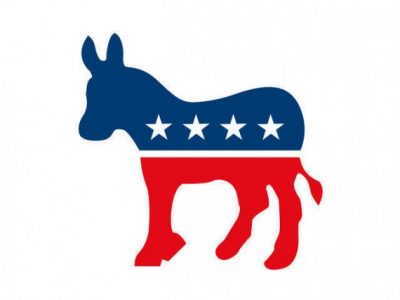
We Have the Money, We Need a Plan
Both of the Democratic candidates for President have put forward the idea of free college for America’s youth. Next year, Oregon will have very low cost ($50/term) for all community college students. Tennessee and Kentucky are both working on free community college for their residents, too. As a parent (and particularly as a parent who will only have half the time most parents do to save for college), I am a fan for free college – community college or a four year program. And I have seen the studies that say the plans put forward to pay for the program work. The money is there. I do not doubt that.
That said, I really want to see a plan for how it will work. Not where will the money come from, but how will the money be distributed? How will eligibility be determined? Will states continue need to continue to support state universities in their budgets?
You see, I am a University Administrator. That is right. I am one of those people whom you have been told is responsible for the increase in tuition dollars. I am, according to reports, the reason college costs so much.
I will be honest. I make good money – enough that I can be the sole earner for our family. At the same time, I do not make any more than I would in the corporate world. Actually, I make less, given the level of responsibility I have, the complexity of the work, etc. In the corporate world, I would be at the Director level or higher, and I would be making over 6 figures. Where I am now, I am still a few years away from that 6th figure.
But you see, a big part of my job is figuring out the money. I run a department that has multiple funding sources – the state budget, grant funds, a self-sustaining Masters program, corporate and private donations… There are different rules for every dollar I spend, based on what the funding source is.
And how the dollars in state funding I get is a complicated equation. It starts with the Univeristy getting a bundle of money in the budget. Central administration keeps some of that. The rest is doled out to the different Colleges and Programs using a formula called Activity Based Budgeting (ABB). At the College level the Dean’s get to keep some of the money for college administration, and then the rest is distributed to departments. Sometimes ABB is used, sometimes it is not.
What is ABB? Basically, ABB looks at how many student hours a college (or department or program) serves as a percentage of all the student hours served and divides up the money in the same percentages. Which sounds really fair, until you realize that this really encourages departments to have those 100 student survey courses where no one really gets a piece of the actual faculty member’s time instead of having smaller classes where students have a chance to get to know their professors. Because the professor’s salary is the same to me every quarter, regardless of whether they are teaching 100 students or 10. But I get 10x the money from the state for that 100 student course.
So will the government take the pot of money, figure out how many student hours each college is serving and divide it up that way? How will they make that equal between colleges on the semester system vs the quarter system?
And what about the current cost of college at the different institutions? Students at community colleges pay less in tuition than those at 4 year universities. But even among universities, tuition can vary greatly. In Washington state, tuition is pretty uniform across all public 4 year institutions, but the cost for University of Washington is certainly different from the cost of the University of Nevada. Will cost of living be taken into account in the calculations?
And what about prestige? The faculty at research universities make a lot more money than the faculty at community colleges or even universities that do not have a research mission. Will the federal money take into account current payroll?
And how do students qualify for free enrollment? Do they have to go to an in state university to get free tuition? And in cases like California, where there are multiple in state universities to choose from, will there be a distance requirement? Can a kid from northern California go to UCLA for free? Even though they might actually live closer to the University of Nevada, Reno?
And now we hit another problem. Will universities be forced to enroll more students? It makes sense that with money removed as an obstacle to education, more people will enroll. But will universities be able to ramp up their capacity before this goes into effect? Will they be forced to change their admissions requirements?
Currently, admissions to University are generally fairly competitive. Will that remain the case? How will schools be allowed to determine the make-up (specifically diversity) of their student body? Again, once money is removed as an obstacle, there will be a lot more underprivileged students applying, and like it or not, that translates to more minority students. And a case may, in fact, make it to the Supreme Court for a second time, that deals with how Universities are allowed to admit for diversity purposes. Will we need quotas?
Are we guaranteeing everyone a college education if they would like it? Or are we simply saying that if you can get into college, you will not have to pay for it?
And then there are little questions, like scholarship endowments. It would be illegal to use these funds for any purpose other than what they were designated for. If they were designated for undergraduate scholarships, and all undergraduate tuition is free, does this money just sit there? Or do students who get scholarships get them to pay for living expenses? Because living expenses will still be a thing. Current financial aid takes into account not just tuition but also living expenses. Will students still need loans to cover their living expenses? Will it matter if they live in a dorm versus off campus? What about those required meal plans? Whose responsibility are those? And again, those are different based on whether you are going to school in Wyoming or New York.
I am in support of free college education. I am. But because this is what I do for a living, I know how complicated this will be. I know that the expense will not just be the tuition, but also administration, including new layers of administration at the federal and even state levels. It takes a lot more to run a university than students and teachers. It just does.
So if the Democratic nominee gets elected to be the next President of the United States (and I will be voting for the Democratic nominee), do not expect free college to happen overnight. This is a complicated mess, with lots of moving parts. It is not that the money is not there, but that the distribution of the money will be trickier than you think.
It is not a reason to not do it. But it is a reason to not rush it. Education is important, too important to mess up with a hastily thrown together piece of legislation.



